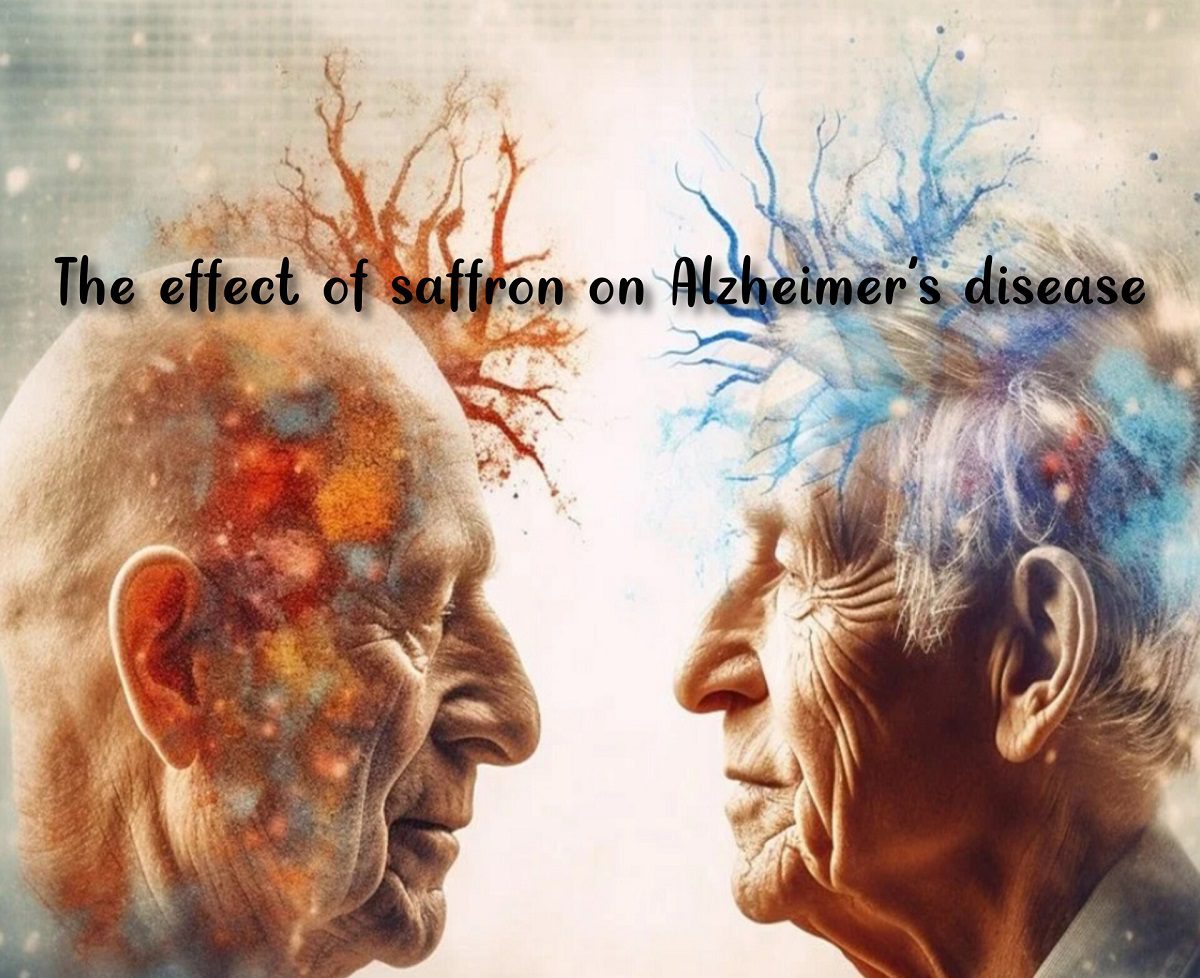Social burden of disease – Alzheimer
Today, diseases of the nervous system are known as the social burden of disease. One of the most important diseases related to memory is Alzheimer’s disease. Alzheimer’s disease is caused by inflammation and imbalance between free radicals and antioxidants (oxidative stress). Many diseases that cause nerve damage appear to increase oxidative stress and the most common of them is Alzheimer’s disease, which causes damage to the tissue of the central nervous system with oxidative damage through immune system. As a result, it reduces cognitive function.
How saffron effects on Alzheimer’s disease
Researches show that crocin plays an effective role in preventing the formation of amyloid plaque. In vitro studies, crocin prevents the formation of neurofibromatosis network, which is one of the key indicators in Alzheimer’s disease. Safranal and crocin create an inhibitory effect and create a mechanism similar to common drugs that are used in the treatment of Alzheimer’s disease, such as donepezil.
Review of the effects of saffron on Alzheimers’s disease
Two limited clinical studies have been conducted to evaluate the effect of saffron on Alzheimer’s disease. In a study, 46 people with mild to moderate Alzheimer’s disease were divided into two groups, one group received 30 mg of saffron and the other group received placebo. After 16 weeks, the results showed that saffron improved cognitive activity compared to the placebo; so that the changes in Alzheimer’s disease evaluation test and dementia evaluation test were significant. In terms of side effects, no significant difference was found between the two groups.
Another study on 54 patients compared the effect of 30 mg saffron daily with donepezil 10 mg daily. The experiment period was 22 weeks in the treatment of mild to moderate Alzheimer’s disease. The findings showed that saffron was as effective as donepezil for the treatment of mild to moderate depression; also, there was no significant difference in side effects except nausea caused by donepezil.
Tsolaki et al. reviewed the effect of saffron on patients with mild cognitive impairment. The results showed that electroencephalogram test, brain event-related potential and magnetic resonance imaging improved in the patients who received saffron.
In another study that investigated the effect of saffron properties on Alzheimer’s, in seventeen laboratory and clinical studies, saffron had a significant effect on all types of memory-related diseases. Crocin has properties such as regulating the level of glutathione, reducing oxidative stress and inhibiting the accumulation of amyloid beta and tau proteins.





